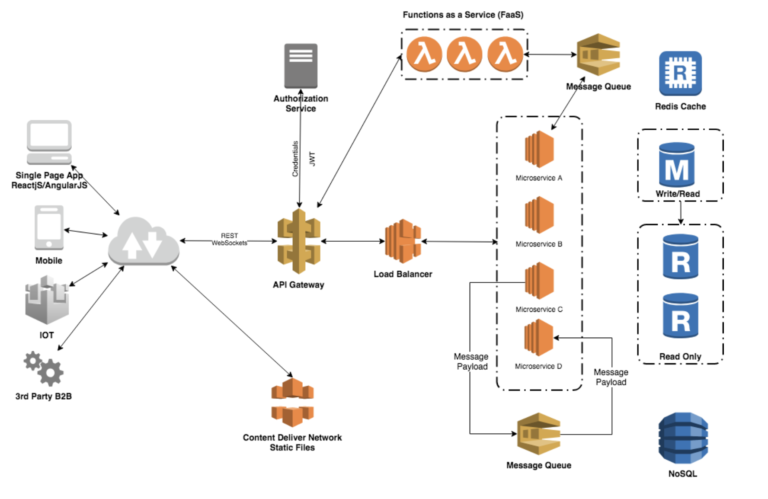Examining the Merits and Drawbacks of Employing Nursing Test Banks for Exam Readiness
The use of nursing test banks for exam preparation has become a widely debated topic among nursing students and educators alike. These resources, filled with a plethora of practice questions and answers, offer a convenient way for students to assess their knowledge and readiness for exams. However, like any tool, nursing test banks come with their own set of advantages and disadvantages that must be carefully considered.
One of the main advantages of utilizing nursing test banks is the opportunity they provide for students to familiarize themselves with the types of questions that may appear on their exams. This can help reduce test anxiety and improve confidence levels, ultimately leading to better performance. Additionally, test banks can save students time by offering a structured study resource that covers a wide range of topics.
On the flip side, some argue that relying too heavily on Nursing Test Banks may hinder critical thinking skills and the ability to apply knowledge in real-world scenarios. There is also the risk of students memorizing answers without fully understanding the underlying concepts, which can be detrimental in a field as complex and dynamic as nursing.
As we delve deeper into the pros and cons of using nursing test banks for exam preparation, it is crucial to weigh these factors carefully to make an informed decision on how best to incorporate these resources into a comprehensive study plan. By understanding the nuances of their usage, nursing students can maximize the benefits of test banks while mitigating potential drawbacks.
Understanding Nursing Test Banks
Nursing test banks are valuable resources for nursing students preparing for exams. They contain a collection of practice questions and answers that cover various topics within the nursing curriculum.
Definition of Nursing Test Banks
A nursing test bank is a compilation of multiple-choice questions, true or false questions, and other formats that mimic the types of questions students may encounter in their exams. These questions are typically organized by topic or chapter, allowing students to focus on specific areas of study. Test banks can be in digital or printed formats, providing flexibility in study preferences.
Purpose of Nursing Test Banks
The primary purpose of nursing test banks is to help students reinforce their understanding of course material and assess their knowledge retention. By regularly practicing with test bank questions, students can familiarize themselves with the format of exam questions and improve their test-taking skills. Additionally, test banks can aid in identifying weak areas that require further study, enabling students to focus their efforts where needed for better academic performance.
Pros of Using Nursing Test Banks
Using nursing test banks offers several advantages to students preparing for exams. Let’s delve into the benefits below:
Comprehensive Review of Content
Nursing test banks provide a wide array of practice questions covering various topics and concepts within the nursing curriculum. By engaging with these questions, students can reinforce their understanding of important information and identify areas that may require further study. This comprehensive review helps in consolidating knowledge and boosting retention of key concepts.
Enhanced Exam Preparedness
One of the significant advantages of utilizing nursing test banks is the enhancement of exam preparedness. By practicing with a diverse range of questions similar to those that may appear on exams, students can familiarize themselves with the types of inquiries they are likely to encounter. This exposure aids in reducing test anxiety and increasing confidence when facing the actual examination.
Time Efficiency in Studying
Efficiency in studying is crucial for nursing students who often juggle multiple responsibilities. Test Banks can help in optimizing study time by providing quick access to practice questions that target specific content areas. This focused approach allows students to concentrate on areas that need improvement, saving time and increasing productivity in their study sessions.
Increased Familiarity with Question Formats
Nursing test banks expose students to various question formats commonly used in exams. From multiple-choice questions to case studies and critical thinking scenarios, practicing with diverse question styles can help learners become adept at interpreting and answering different types of inquiries. This familiarity with question formats can be invaluable in improving overall test-taking skills and performance.
Utilizing nursing test banks can be a valuable component of a comprehensive study strategy, offering students a structured approach to reviewing content, enhancing exam preparedness, maximizing study time efficiency, and increasing familiarity with diverse question formats.
Cons of Using Nursing Test Banks
Using nursing test banks for exam preparation has its drawbacks that students should be aware of to make informed study choices. Here are some key cons to consider:
Risk of Over-Reliance on Memorization
Relying too heavily on nursing test banks can lead to a surface-level understanding of the material. Memorizing answers without truly understanding the concepts can hinder long-term retention and application of knowledge. This approach may not adequately prepare students for the complexities of real-world nursing scenarios where critical thinking and problem-solving skills are essential.
Potential for Inaccurate Content
Nursing test banks may contain errors or outdated information, posing a risk to students who rely solely on these resources for exam preparation. Inaccurate content can mislead students and result in incorrect answers during exams, ultimately impacting their academic performance and confidence.
Limited Critical Thinking Development
Engaging with nursing test banks often involves rote memorization of answers to common questions, which may limit the development of critical thinking skills. Instead of actively engaging with and analyzing the material, students may focus solely on memorizing responses, potentially hindering their ability to think critically and apply knowledge in new situations.
Risk of Inadequate Preparation for Varied Exam Formats
Exclusively using nursing test banks may not fully prepare students for the diverse formats and types of questions they may encounter in exams. Test banks typically follow a specific structure and question style, which may not align with the exam format used by their educational institution. This lack of exposure to varied question types could leave students unprepared for the exam’s challenges and reduce their overall performance.
Ethical Considerations
Navigating the use of nursing test banks for exam preparation involves important ethical considerations that aspiring nurses must ponder. Two critical aspects to weigh are concerns about academic integrity and the impact on professional development.
Concerns About Academic Integrity
One significant ethical consideration when utilizing nursing test banks is the potential impact on academic integrity. Test banks contain questions that may be similar to those on actual exams, raising concerns about fairness, honesty, and the validity of the assessment process. Students must reflect on whether relying heavily on test banks aligns with ethical academic practices or if it veers into the territory of academic dishonesty. Striking a balance between utilizing test banks as study aids and maintaining integrity in the learning process is paramount.
Impact on Professional Development
Another crucial ethical aspect to contemplate is the impact of using nursing test banks on professional development. While test banks can offer valuable practice questions, overdependence on them might hinder critical thinking skills and the ability to synthesize information independently. Nurses need to develop strong analytical and problem-solving skills to provide quality patient care. Reflecting on how test banks fit into the broader picture of professional growth can help individuals make informed decisions about their learning strategies.
Effective Strategies for Using Nursing Test Banks
Nursing test banks can be valuable study aids when used strategically. Here are some effective strategies to optimize your use of test banks:
Supplement Test Bank Use with Active Learning
Pairing test bank usage with active learning techniques can enhance your understanding and retention of key concepts. Instead of passively reviewing questions and answers, engage in activities like group discussions, teaching concepts to others, or creating flashcards based on the test bank content. These active learning methods can deepen your comprehension and help you apply knowledge more effectively during exams.
Utilize Test Banks as a Diagnostic Tool
One of the benefits of nursing test banks is their diagnostic capabilities. Use them to assess your strengths and weaknesses in different subject areas. By identifying areas where you need improvement, you can tailor your study efforts more efficiently. Focus on the topics where you struggle the most, and utilize the test banks to practice related questions until you feel confident in those areas.
Seek Guidance from Educators
While test banks are useful study resources, seeking guidance from educators can provide valuable insights and clarifications. Discuss challenging questions or concepts with your instructors to gain a deeper understanding. They can offer explanations, additional resources, and guidance on how to approach complex topics. Leveraging the expertise of educators complements your test bank usage and ensures a well-rounded approach to exam preparation.
Conclusion
In the realm of nursing education, the utilization of test banks for exam preparation comes with its set of advantages and disadvantages. While these resources can offer a structured approach to studying and reinforce understanding of course material, they can also pose certain risks related to reliance on memorization rather than comprehension.
Pros of Using Nursing Test Banks
Test banks can serve as valuable tools for students looking to assess their knowledge and familiarize themselves with the format of nursing exams. By practicing with questions similar to those that may appear on their assessments, students can build confidence and improve their test-taking skills. Moreover, test banks often cover a wide range of topics, allowing learners to gauge their proficiency across various content areas.
Cons of Using Nursing Test Banks
On the flip side, excessive reliance on test banks can lead to a superficial understanding of the course material. Students may prioritize memorization of answers over true comprehension, limiting their ability to apply concepts in real-world scenarios. Furthermore, some test banks may contain errors or outdated information, potentially misleading students and affecting their exam performance negatively.
When considering the use of nursing test banks, students should weigh these pros and cons carefully to make informed decisions about how to incorporate these resources into their study routine. Balancing the benefits of practice questions with the need for deep learning is essential for achieving success in nursing education.
Stay in touch to get more updates & news on World times!







